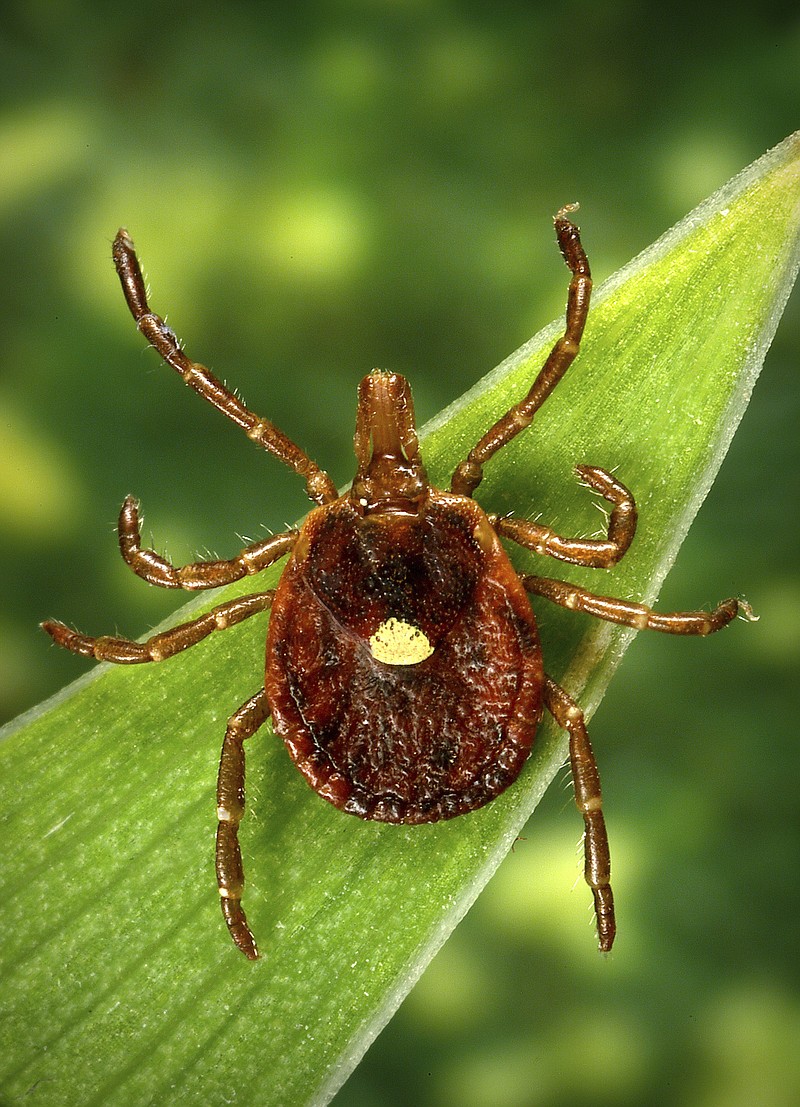A disease known as the Heartland virus is appearing in the southern U.S., including Arkansas.
An Arkansas resident was recently identified with the disease and subsequently recovered.
"It is possible we may see more cases but it is considered a rare disease at this time," said Katie White, spokesperson for the Arkansas Department of Health. "To date, more than 20 cases of Heartland virus disease have been identified in several states in the Southeast and South Central United States so it's not surprising that Arkansas has a case."
Heartland belongs to a family of viruses called Phleboviruses.
"Viruses in this family are found all over the world, and some of these viruses can cause people to get sick. Most of the Phleboviruses that cause people to become ill are passed through the bite of a mosquito, tick or sandfly," White said.
People become infected with Heartland through the bite of a Lone Star tick. The virus causes flu-like symptoms including fever, headache, muscle aches, diarrhea, appetite loss and fatigue.
There are many tick-borne illnesses more common in Arkansas including Ehrlichiosis, Rocky Mountain Spotted Fever, Anaplasmosis and Tularemia.
"Ehrlichiosis and Rocky Mountain Spotted Fever are the two most reported tick-borne illnesses in Arkansas," White said.
So far in 2017, there have been 60 cases of Ehrlichiosis and 321 cases of Rocky Mountain Spotted Fever, according to the ADH website.
"The dangers associated with different tick-borne illnesses depend on each individual's specific health and susceptibility to the diseases," White said. "Prevention is your best defense from becoming infected with a mosquito or tick-borne disease. Preventing insect bites reduces your risk of getting diseases that some insects carry."
Removing ticks as soon as possible could help prevent illness.
"A tick attached to the skin should be removed as soon as possible. This is important because many tick-borne diseases will not be transmitted until the tick has been attached for several hours. It is important that if a person suspects they have a tick-borne disease or has the 'summer flu' to go see a medical provider. Most common tick-borne diseases we see in Arkansas can be treated effectively with proper diagnosis," White said.
Tips to prevent tick bites include:
- Avoid tick-infested areas
- Tuck pants into sock tops or boots
- Wear light-colored clothing to make it easier to find crawling ticks
- Use insect repellents and follow label instructions carefully
- People should check themselves, children and pets often for ticks
- Take a bath or shower within two hours of being where ticks live to find and wash off ticks that may be crawling on you.

